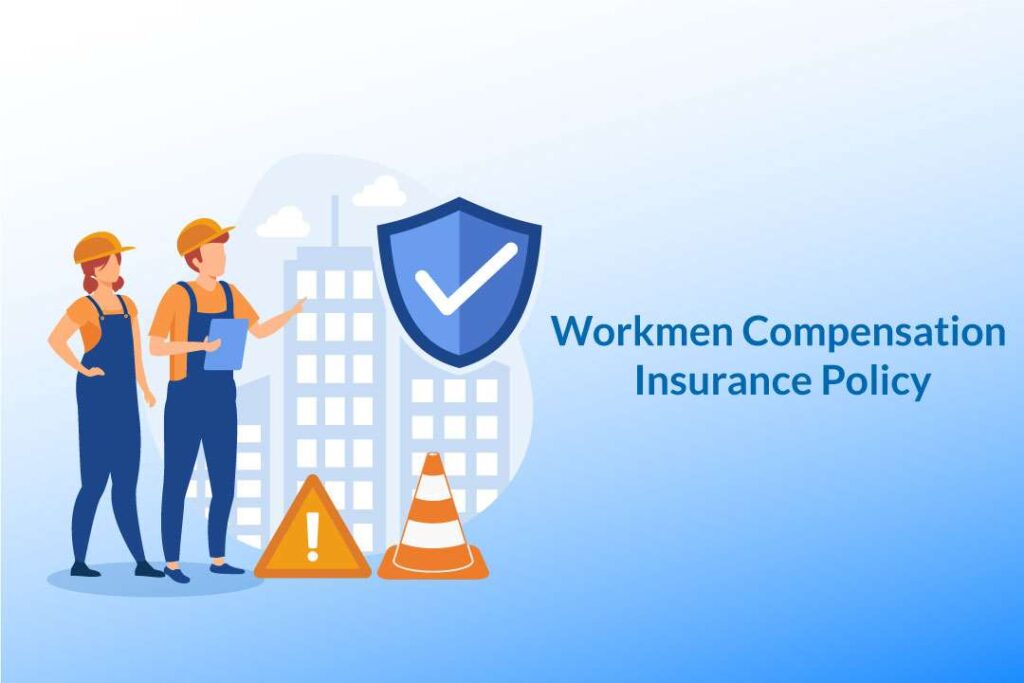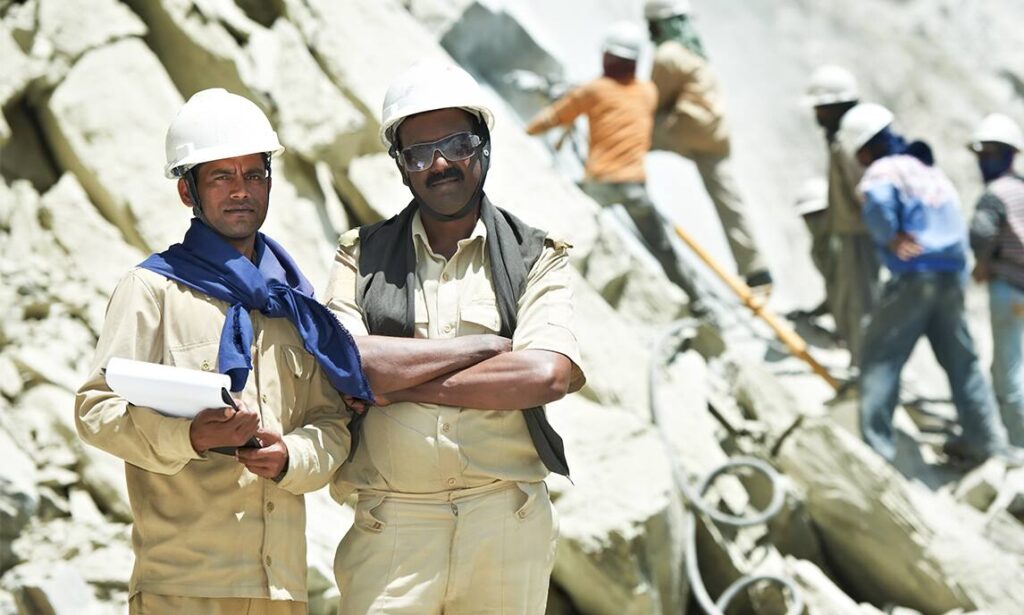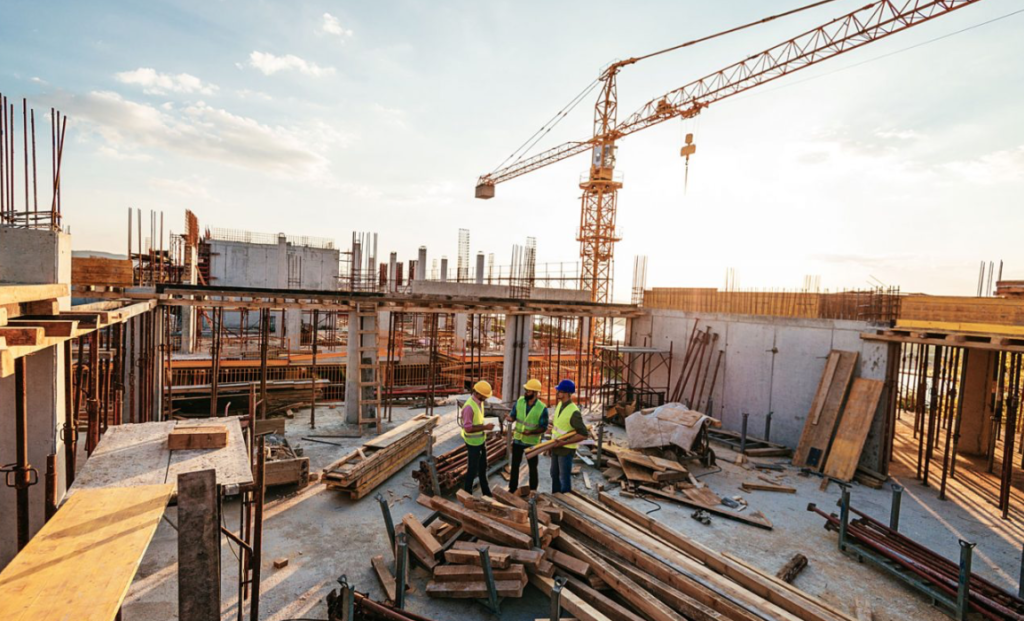When it comes to the construction industry, workplace accidents and injuries are, unfortunately, quite common due to the nature of the work.
Construction sites are inherently hazardous environments with workers exposed to risks such as falls, machinery accidents, and hazardous materials.
To mitigate the financial burden of workplace injuries and protect both employers and employees, workers’ compensation insurance is crucial.
This insurance provides coverage for medical expenses, lost wages, and rehabilitation costs related to workplace injuries or illnesses.
In this comprehensive guide, we will explore the intricacies of workers’ compensation insurance in the construction industry.
We’ll cover its importance, key benefits, legal requirements, and common challenges, while also providing tips for construction employers to ensure safety and compliance.
What is Workers’ Compensation Insurance?

Small Business Health Insurance Plans Texas
Workers’ compensation insurance is a type of insurance that provides financial support and medical benefits to employees who are injured or become ill due to their job.
This insurance covers medical expenses, rehabilitation costs, and a portion of the lost wages for workers who are unable to work due to their injury.
Workers’ compensation insurance also offers protection for employers by limiting their liability, as employees typically waive their right to sue the employer in exchange for these benefits.
The construction industry is one of the sectors that rely heavily on workers’ compensation insurance, as job-related injuries are relatively common compared to other industries.
Why is Workers’ Compensation Insurance Critical in Construction?
The construction industry is characterized by dangerous work environments, making workers more susceptible to accidents.
Heavy machinery, heights, and hazardous materials all contribute to the risks involved. Here are a few reasons why workers’ compensation insurance is especially important for construction companies:
- High Risk of Injury: Due to the physical nature of construction work, injuries are more likely to occur. Common injuries include falls, cuts, fractures, and exposure to harmful substances. Workers’ compensation helps cover the medical expenses and recovery costs associated with these injuries.
- Financial Protection for Workers: In the event of an injury, workers’ compensation provides wage replacement, allowing workers to support themselves and their families while recovering. This is particularly important for construction workers who may be sidelined for long periods due to severe injuries.
- Compliance with Legal Requirements: In most states and countries, workers’ compensation insurance is required by law for businesses that have employees. Failing to carry this insurance can result in hefty fines, penalties, and legal complications for the employer.
- Reduces Employer Liability: Without workers’ compensation insurance, construction companies could face costly lawsuits from injured employees. Workers’ comp serves as a trade-off, providing benefits to workers while protecting employers from legal claims.
Key Benefits of Workers’ Compensation Insurance for Construction Workers

Top 10 Insurance Plans in the USA
Workers’ compensation insurance provides several critical benefits for construction workers, ensuring their safety and financial stability. Below are some of the major benefits:
1. Medical Coverage
The primary benefit of workers’ compensation insurance is medical coverage for injuries sustained on the job.
This can include doctor visits, hospital stays, surgeries, medications, and physical therapy.
In construction, where injuries can be severe or even life-threatening, medical expenses can quickly add up.
Workers’ compensation ensures that workers don’t have to bear the financial burden.
2. Wage Replacement
When a worker is injured and unable to return to work, workers’ compensation provides a percentage of their lost wages.
Typically, this covers around 66% of the worker’s usual earnings, though this may vary depending on local laws.
This benefit ensures that injured workers can continue to support themselves financially during their recovery period.
3. Vocational Rehabilitation
In cases where an injury prevents a worker from returning to their previous job, workers’ compensation may cover the costs of vocational rehabilitation.
This can include job training, education, and even assistance with finding new employment.
4. Death Benefits
If a construction worker dies as a result of a workplace accident, workers’ compensation insurance provides death benefits to the worker’s dependents.
These benefits can help cover funeral expenses and provide financial support to the worker’s family.
Legal Requirements for Workers’ Compensation Insurance in Construction
Workers’ compensation laws vary from state to state, but in general, employers in the construction industry are required to carry this type of insurance.
Failure to comply with workers’ compensation regulations can lead to serious legal and financial consequences for employers.
1. Mandatory Coverage
Most states in the U.S. mandate that employers with one or more employees must carry workers’ compensation insurance.
Construction companies, regardless of size, are often subject to strict regulations due to the high-risk nature of their business.
Employers who fail to obtain workers’ compensation insurance can face fines, lawsuits, and even criminal charges in some states.
2. Penalties for Non-Compliance
Employers who neglect to provide workers’ compensation insurance may face severe penalties, including hefty fines, stop-work orders, and even imprisonment in extreme cases.
In addition, if an uninsured worker is injured, the employer may be held liable for all medical expenses, lost wages, and additional damages through a lawsuit.
3. Independent Contractors and Workers’ Compensation
A common issue in construction is determining whether independent contractors are covered under workers’ compensation insurance.
In many cases, independent contractors are not entitled to workers’ comp benefits. However, the classification of workers as independent contractors can sometimes be disputed, leading to legal challenges.
Construction companies must ensure they correctly classify their workers to avoid complications.
Common Challenges and Misconceptions About Workers’ Compensation in Construction

Workers’ compensation insurance can be complex, and there are several common challenges and misconceptions that construction employers and workers face.
Understanding these issues is key to ensuring compliance and maximizing the benefits of this critical coverage.
1. Misclassification of Workers
One of the most common challenges in the construction industry is the misclassification of workers.
Employers may classify workers as independent contractors to avoid paying workers’ compensation premiums, but this can lead to legal trouble.
If a worker is misclassified and gets injured, the employer may be held financially responsible.
2. Fraudulent Claims
Fraudulent claims are another concern in workers’ compensation cases. Some workers may exaggerate the extent of their injuries or falsify claims to receive benefits.
Employers should have systems in place to verify the legitimacy of workers’ compensation claims to prevent fraud.
3. Rising Insurance Premiums
Due to the high-risk nature of construction, workers’ compensation insurance premiums can be expensive.
Employers may struggle to afford the increasing costs of insurance, particularly if they have a poor safety record or multiple claims filed by their workers.
4. Delayed or Denied Claims
In some cases, workers may experience delays or denials when trying to file a workers’ compensation claim.
This can be due to administrative errors, disputes over the cause of the injury, or insufficient documentation.
Employers should provide clear guidelines to workers on how to file claims and ensure that they have the necessary paperwork in place.
Ensuring Safety and Compliance in the Construction Industry

To reduce the risks of workplace accidents and the need for workers’ compensation claims, construction companies should prioritize safety and compliance. Here are some strategies to help:
1. Implement a Strong Safety Program
A comprehensive safety program is essential for minimizing workplace injuries in the construction industry.
Employers should provide regular safety training, enforce safety protocols, and ensure that all workers have access to the necessary protective equipment.
2. Conduct Regular Safety Audits
Regular safety audits help identify potential hazards on the construction site. Employers can address any issues before they result in accidents.
These audits should include an evaluation of the equipment, tools, and safety procedures used on site.
3. Encourage Reporting of Unsafe Conditions
Construction workers should feel comfortable reporting any unsafe conditions or potential hazards without fear of retaliation.
Employers must create an open line of communication, encouraging workers to speak up about safety concerns.
4. Review Workers’ Compensation Policies Annually
To ensure that the business remains compliant with workers’ compensation laws, employers should review their insurance policies on an annual basis.
This allows them to make any necessary adjustments, such as increasing coverage or reclassifying workers.
Final Thoughts: How Workers’ Compensation Supports the Construction Industry
Workers’ compensation insurance is a vital component of the construction industry. It not only protects workers by covering medical expenses and lost wages but also shields employers from potentially devastating lawsuits.
Given the high-risk nature of construction work, workers’ compensation serves as a safety net for both employees and employers.
However, navigating the complexities of workers’ compensation laws, managing rising insurance costs, and ensuring worker safety are ongoing challenges for construction companies.
By prioritizing workplace safety, ensuring compliance with legal requirements, and regularly reviewing insurance policies, construction companies can reduce their risks and create a safer environment for all workers.
Frequently Asked Questions (FAQs)
1. What does workers’ compensation insurance cover in the construction industry?
Workers’ compensation insurance covers medical expenses, lost wages, and rehabilitation costs for workers injured on the job. It may also provide death benefits for the families of workers who die as a result of workplace accidents.
2. Is workers’ compensation insurance mandatory for all construction companies?
Yes, in most states, construction companies are required by law to carry workers’ compensation insurance if they have employees. Failure to comply can result in fines and legal action.
3. How can construction companies reduce the cost of workers’ compensation insurance?
Companies can reduce costs by maintaining a strong safety program, conducting regular safety audits, and ensuring proper classification of workers. A good safety record can lead to lower insurance premiums.
4. Are independent contractors covered under workers’ compensation in construction?
In most cases, independent contractors are not covered under workers’ compensation insurance. However, misclassification of workers can lead to legal disputes, so it’s important to accurately classify workers.
5. What should a construction worker do if their workers’ compensation claim is denied?
If a claim is denied, workers should review the denial
letter to understand the reason, and then file an appeal if they believe the denial was unjust. It may also be helpful to consult with an attorney who specializes in workers’ compensation law.

2 thoughts on “Workers Compensation Insurance Construction”